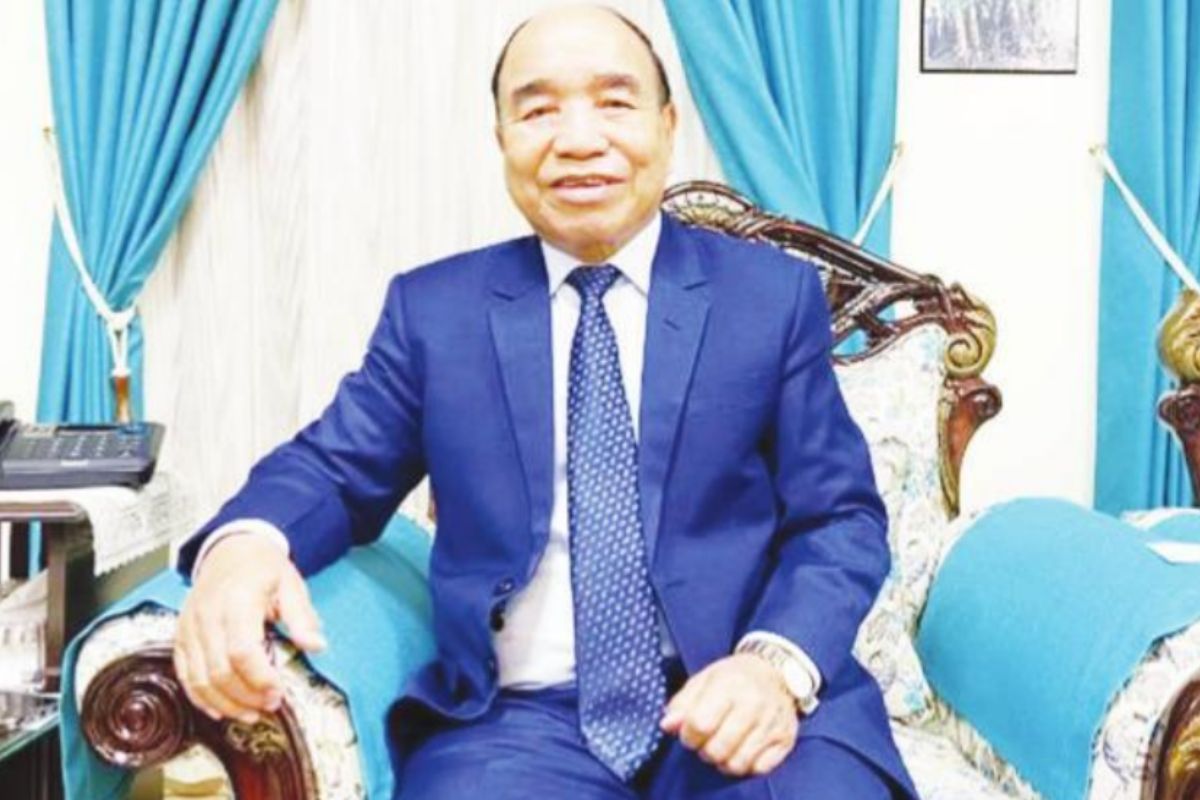PM Modi greets people of Arunachal Pradesh, Mizoram on their Statehood Day
Prime Minister Narendra Modi on Thursday greeted the people of Arunachal Pradesh and Mizoram on their Statehood Day.
With his party, Mizo National Front’s fortunes at stake, he discusses his party’s prospects and addresses key issues

Mizoram Chief Minister Zoramthanga, who has been in power for the last three terms, is gearing up for the upcoming elections in the Christian-majority state of Mizoram. With his party, Mizo National Front’s fortunes at stake, he discusses his party’s prospects and addresses key issues in an interview with ABHIJIT DEB.
Q: MNF has been in power for three terms, and anti-incumbency is a major challenge. How do you plan to overcome this?
Advertisement
A: While we do face anti-incumbency in some areas, people understand the challenges we’ve faced, such as the pandemic and the influx of people from Manipur, Myanmar, and Bangladesh. I believe that the majori- ty of people support us, and I’m con- fident we will secure a fourth term.
Advertisement
Q: Despite MNF being an ally of the BJP at the Centre, there seems to be friction between the two parties in Mizoram. Can you clarify this?
A: MNF and BJP have their own prin- ciples. We provide issue-based sup- port to the NDA, and if any issue goes against the interests of the Mizos, we openly oppose it. While we have worked together in Delhi, we won’t compromise on ideological bound- aries. For example, we’ve opposed the uniform civil code.
Q: Zoram Peoples Movement (ZPM) is emerging as a strong con- tender against MNF in this election. What are your thoughts on this?
A: ZPM is a growing party, but they face internal disputes and are rela- tively new. I don’t believe they will cross the 10-seat mark.
Q: Can your call for greater Mizo unity influence voters?
A: The Mizo, Kuki, Zomi, Hmar, Chin (Myanmar), and Kuki-Chin (Bangladesh) tribals share ethnic ties within the Zo community. MNF’s call for Zo reunification is a significant factor in these elections. We have kin in Manipur who recognize our efforts, despite some opposition. The Kuki- Zo tribals from Manipur support MNF’s return to power.
Q: Your ally BJP at the Centre promises to set up a special investi- gation team to probe alleged corrup- tion in the state government. How do you respond?
A: We are not concerned about BJP’s promise to set up an investi- gation team. We’ve maintained transparency in implementing the Socio-Economic Development Pro- ject, and there’s no evidence of wrongdoing. If they wish to pro- ceed, they are welcome, but we believe our actions are well-docu- mented.
Q: On the issue of refugee data, you’ve refused to collect biometric data of Myanmar and Bangladeshi refugees.Why?
A: During election time, the state government lacks the resources to collect biometric and biographic data of Myanmarese and Bangladeshi refugees. We also deem it unnecessary. When mil- lions of refugees arrived from East Pakistan in 1971, the Central gov- ernment didn’t undertake such data collection. If re-elected, I’ll discuss this with Prime Minister Narendra Modi.
Q: The drug problem is a signifi- cant concern in the elections. How do you plan to tackle this issue?
A: Drug trafficking into Mizoram from Myanmar has risen due to the political situation in the neighbor- ing country. This issue is beyond the control of MNF or the govern- ment. Poppy plantations in eastern Myanmar, especially the Golden Triangle, contribute to this prob- lem. We’ll address it by working with relevant authorities and tak- ing measures to ensure our state’s safety.
Advertisement